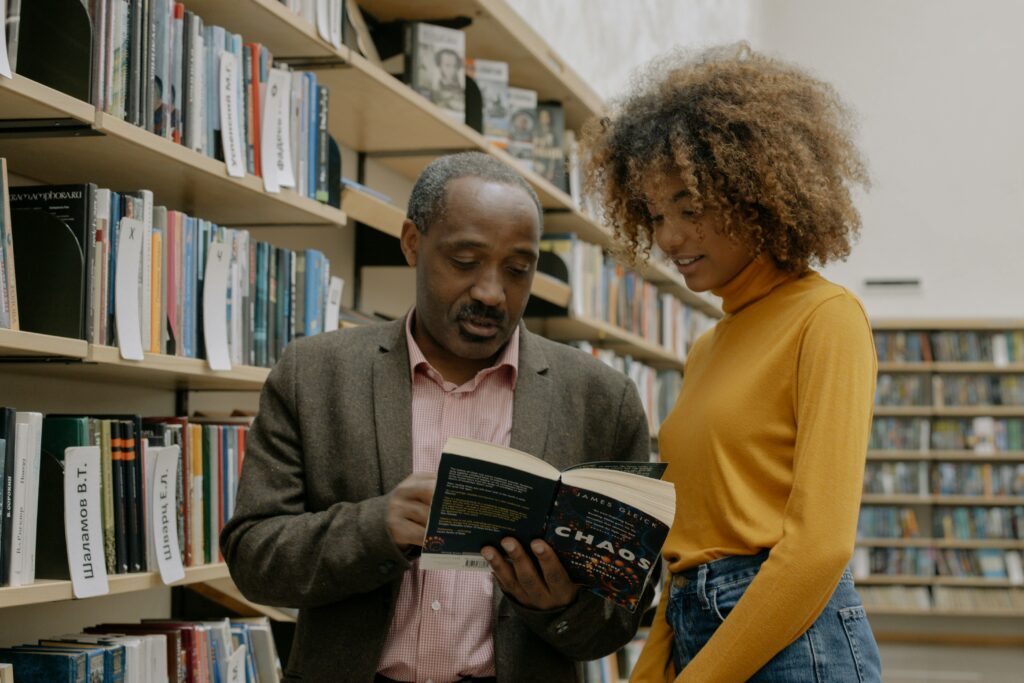It takes a lot for a non-traditional student to jump back into school or even start virtually from scratch. It’s a very challenging endeavor but it requires some pretty great qualities to not only take those first steps towards an educational journey but also stay the course. Many often do it for new opportunities, a better career path and the possibility of a better life. First of all, what is a non-traditional student? Well, although it is still often debated as to what constitutes a non-traditional student, it does seem that a few things tend to fall under a general consensus, such as, someone who is going back to school or starting school over the age of 24. This person would also likely have outside commitments, such as family obligations, a full-time job or other life circumstances that can interfere with successful completion of educational objectives. You can read more about what constitutes as a non-traditional student from the The National Center of Education Statistics link provided. https://nces.ed.gov/pubs/web/97578e.asp
The fact remains, anyone embarking on an educational journey for a better life and opportunities later down the road will have to display some pretty vinteresting character traits. They’ll have to show the ability to master time management in order to juggle work, family life and studies. They’ll have to display various levels of adaptability to basically navigate diverse learning environments. Determination will be needed to overcome challenges amidst their unique circumstances and resilience to balance multiple responsibilities over what could be a long period of time. They may also have to humble themselves. Depending on the situation they’re coming from, there could be a scenario where someone they went to highschool with is now teaching the entry level community college course that they’ll have to enroll in.
So why do it and is it worth it? It’s it worth the time? Is it worth the money? I’ve stated many times on this platform that I went back to school as a non-traditional student. I can tell everyone reading this that for me it was life changing. It was one of the best decisions I ever made in my life. I was able to put myself in a better position altering the path for my future and it put me on a course for a better quality of life down the road and a way to further provide for my family. Although, we all know, one size does not fit all and everybody’s personal situations are different and unique. Everybody’s path is different and along those different paths, different and unique decisions need to be made that are in the best interest for the individual making them. If anyone out there is thinking about going back to school after reading this. I recommend talking to an educational guidance counselor first. To learn more checkout the following degreechoices.com article, “Is college a good investment for adult learners?”.
It can be a little intimidating standing out or just having the perception that you’re somehow standing out. For example, if a non-traditional student believes they’re the oldest person in their class, they may feel like they can’t really relate to some of the individuals around them. They may get this belief from a variety of reasons such as age, life experience, their previous environment or other external factors they may not share with their classmates. This could even extend to the professor. It’s non uncommon for a non-traditional to be older than the professor. Then there is the thought and possible fear of adjusting to the learning curve after being away from school for an extended period of time. That alone can be intimidating. It’s important for these students to know that they are not alone. Professional development centers and non-traditional student forms can be a wonderful resource.
For a non-traditional student or someone embarking on that journey, it is crucial to block out the noise. This is essential for overcoming challenges of dealing with imposter syndrome in order to help build resiliency. Remember, the objective is to stay on track and achieve the desired goals despite the challenges. By persevering through difficulties, one sets an example for others who may be in similar situations. Determination and success can inspire others to pursue their dreams, regardless of the obstacles. It is important to keep in mind that education is an investment in ones future and a person’s life experiences can bring valuable insights to classroom discussions and interactions with professors and peers. Instead of seeing differences as barriers, it is important to view them as assets that enrich the learning environment.
